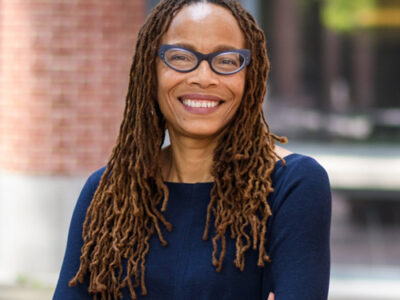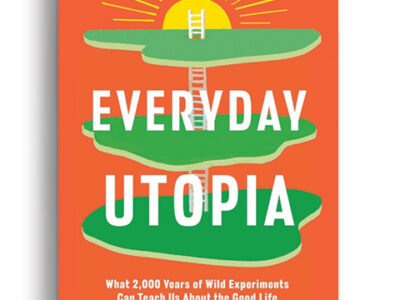 Tenth-grade journalism was the only class Thomas Friedman ever took in the subject area that would become his profession. But the New York Times columnist credits the teacher of that class with inspiring him to pursue a path that eventually led to three Pulitzer Prizes, not to mention the authorship of such bestselling books as The World Is Flat.
Tenth-grade journalism was the only class Thomas Friedman ever took in the subject area that would become his profession. But the New York Times columnist credits the teacher of that class with inspiring him to pursue a path that eventually led to three Pulitzer Prizes, not to mention the authorship of such bestselling books as The World Is Flat.
Inspiration was on Friedman’s mind during a recent visit to Penn, where he took part in the annual David and Lyn Silfen Forum, which this year considered massive open online courses and “the future of higher education.” Joining Friedman in a panel discussion moderated by Penn President Amy Gutmann were Martha Kanter, Under Secretary of the US Department of Education; William Kirwan, chancellor of the University System of Maryland; and Daphne Koller, a Stanford professor and co-founder of Coursera, with which Penn has partnered to offer free online courses.
The rapid rise of the MOOC has occasioned countless consultations of the proverbial crystal ball—including in the pages of the Gazette [“MOOC U.,” March|April]. But the best way for a prognosticator to boost his odds is by serving up multiple visions of the future. That’s the route Friedman took on the question of whether MOOCs will supplant the traditional model of university education. Early in the discussion, he emphasized the critical importance of intimate teacher-student relationships—drawing on his own elite educational experience, which culminated with graduate study at the University of Oxford on a Marshall scholarship. A little later, he summoned his experience as a parent to explicitly warn Gutmann that, sooner than most people think, not just cash-strapped public universities but the Stanfords and Penns of the world will be losing the best and brightest students to the online education vendors they have helped to spawn.
“For the Industrial Revolution, we made a small ask of people. We basically asked them to join a union, come to work every day, and do a repetitive task, whether it was in the service or production sector. I’m speaking in a very gross generalization of the average worker. We’re now making very big asks of people. We’re asking them to do critical thinking and problem-solving. We’re asking them to learn, re-learn, and re-engineer themselves every year. That’s a very big ask. I think the small ask, you could do through motivating people with carrots and sticks. A big ask like that requires inspiration. And that’s why, if you look at a lot of the most interesting education writing today, it says we have three objectives: One, we need that base of knowledge—the calculus, the physics, you can’t do anything without that. Second, we now need critical thinking and problem-solving. But third, persistence and motivation. Because there’s one thing about this world: It enables, it inspires, it empowers—but it demands much more self-motivation. And that starts, I think, with an inspired teacher…”
“I have a daughter at Stanford now, so I happen to know what the tuition is, in graduate school. And I don’t think this model is sustainable. I have two daughters— one’s 24 and one’s 27—and I’m struck at the number of their friends who have jobs, but are not on career tracks. There’s a difference between a job and a career. And I really am struck by the number of them I’ve spoken to who will confide in me, ‘I have $100,000 in loans. I have a huge burden.’ … And they’re not on career paths, they’re in jobs—teaching English in Istanbul, or Dubai … I think the model of higher education is going to blow up if it cannot find a cheaper way. [Here’s what] I think what’s going to happen, if you ask me. In five years, you will come to your college-age son or daughter, and say, ‘Look, would you like to go to Stanford, or Penn, and have that campus experience, and the T-shirt, the hat, and the network and all that? Or would you basically like to have 20 Coursera certifications? Do you want a Penn degree, or do you want a collection of certifications, where the whole thing will cost you probably less than $5,000—probably far less than that—and by the way, you can take Amy Gutmann on ethics, you can take Daphne Koller on applied learning?’ I think that’s the choice a lot of parents are going to be giving to their kids—very quickly…
“I just give you one warning. Everything that happened to media is about to happen to education. And we at The New York Times, we thought, ‘We’re The New York Times! We’re the Penn of the news business!’ Watch out.”




